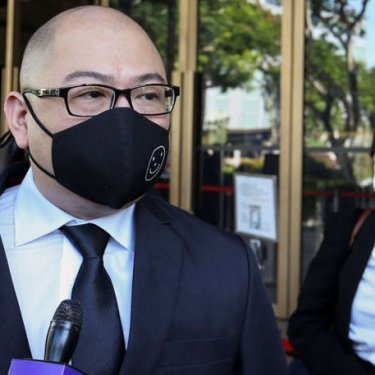Singapore suspends independent website, threatens it with closure

A Singaporean news website, The Online Citizen (TOC), is being made to pay for its independence, Reporters Without Borders (RSF) says. Two weeks after being ordered to pay the city state’s prime minister massive damages in a defamation suit, it is now threatened with imminent closure for allegedly violating media funding legislation.
----------------------------------------------------------------------------
Update - 15 October 2021
The Online Citizen news website’s licence was permanently cancelled today, one month after being suspended by Singapore’s media regulator. The reason was editor Terry Xu’s insistence on protecting the identity of his subscribers and thereby failing to comply with the regulator’s demand to be fully informed about its sources of funding. RSF condemns this arbitrary use of the media funding law and calls on the authorities to reverse their draconian decision to close one of the city-state’s last independent media outlets.
----------------------------------------------------------------------------
If nothing is done, TOC will have to disable its website and social media channels at 3 p.m. tomorrow (16 September) at the behest of Singapore’s Infocomm Media Development Authority (IMDA), which suspended its licence yesterday and, at the same time, ordered it to stop posting content with immediate effect.
The IMDA has given TOC two weeks, until 28 September, “to provide further information [about its sources of funding] to fully comply with the Broadcasting Act,” failing which its licence will be cancelled under article 12 of this law.
The IMDA claims that TOC editor Terry Xu (who is also known by his Chinese name Xu Yuanchen) has failed to provide it with satisfactory information about its funding, especially reader subscriptions, and says its funding model could serve as “an avenue for foreign influence.” Singapore bans any direct foreign investment in its media.
Gobbledygook
When contacted by RSF, Xu insisted that TOC has provided the IMDA with all the necessary documents. “Our site has never received any foreign funding, nor would it in the future,” he said in a Facebook post.
RSF also contacted the IMDA to seek clarification about TOC’s alleged “repeated failures” to account for his funding but was simply provided with a quote from an official statement, saying: “There is no reason for TOC not to comply, as other registered Internet content providers provide this information in order to be transparent about their sources of funding.”
“In response to all the gobbledygook from the IMDA, we call for the immediate restoration of TOC’s licence,” said Daniel Bastard, the head of RSF’s Asia-Pacific desk. “Let's not be fooled: the pro-government newspapers and news sites that constitute most of the Singaporean media are entirely exempt from the IMDA’s requests, unlike TOC, which is subjected to endless harassment. The site is clearly being made to pay for its editorial independence.”
Nebulous mechanisms
TOC’s suspension by the IMDA, an agency that is a government offshoot, comes two weeks after a court ordered it to pay Prime Minister Lee Hsien Loong the equivalent of 250,000 euros in damages in a lawsuit which, as RSF reported at the time, Lee brought against the site in September 2019 over an article that simply drew attention to a surprising Facebook post by his wife.
It was the crowdfunding campaign that TOC launched in order to pay the damages that provided the IMDA with the pretext for accusing the website of financing itself illegally.
In October 2020, in the run-up to Singapore’s Universal Periodic Review by the UN Human Rights Council, RSF provided the Council with an analysis of the nebulous mechanisms used by the city state to censor the media by subjecting them to judicial, economic and psychological harassment.
Singapore is ranked 160th out of 180 countries in RSF's 2021 World Press Freedom Index and has been coloured black on the RSF press freedom map since 2020 because the situation is classified as “very bad.”



